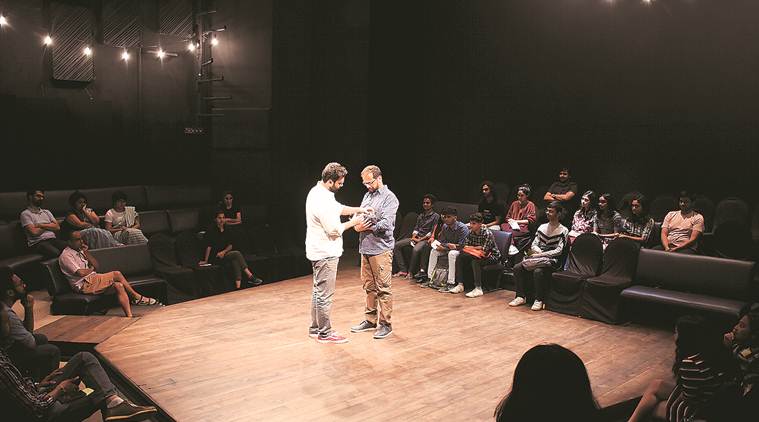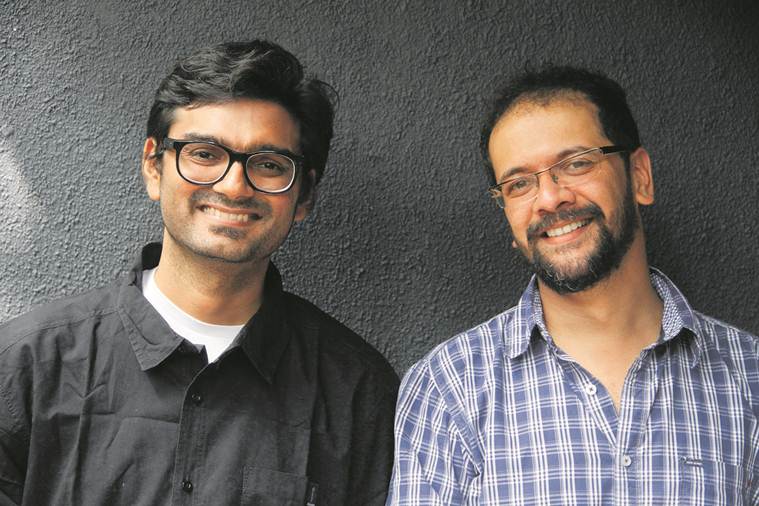
Count Your Blessings
A scene from Every Brilliant Thing WHEN the narrator in the play Every Brilliant Thing was seven yea..
 A scene from Every Brilliant Thing
A scene from Every Brilliant ThingWHEN the narrator in the play Every Brilliant Thing was seven years old, his father delivered the news that his mother was in the hospital as she had “done something stupid”. When the child learnt that his mother found it hard to be happy, he made a list of everything that is brilliant and left it on her pillow. His list kept growing, as life turned out to be one emotional roller-coaster ride. The interactive play, written by British playwright Duncan Macmillan with Jonny Donahoe, opened at the Edinburgh Fringe Festival in 2014.
Advertising
A couple of years later, Mumbai-based theatre practitioner Quasar Thakore Padamsee read the play and instantly loved it. “As with any play of this delicate a nature, it takes a little time to come to fruition. Firstly, you have to be in the right head space to embark on the journey of creating it, and of course find the right actor,” says Thakore Padamsee. The latest version of the play, directed by him and performed by Vivek Madan, opened at Mumbais Prithvi Theatre recently and has had several shows since. Some of them were followed by discussions on mental health.
The producers at Q Theatre Productions (QTP) — Toral Shah, Vivek Rao and Thakore Padamsee — toyed with several names before zeroing in on Bengaluru-based Madan to perform the play. Madan, who came on board last November, says: “I was intrigued by the brief that Quasar gave me even before I read the script. He said that this was a play stripped entirely of artifice; there was to be no acting. Secondly, we needed to tell a story that an audience could witness and participate in.”

 Vivek Madan and Quasar Thakore Padamsee
Vivek Madan and Quasar Thakore PadamseeThe format of the play, which is presented with lights on, blurs any barrier between the actor-narrator and the audience, who are seated in a circle. “One of the things we were very clear about is that the audience helps the actor take the story forward. Just like you need support when dealing with mental health issues, the audience supports the actor in narrating the story. Its a shared experience,” says Thakore Padamsee. In this story told in first-person and infused with a feel-good vibe, members of the audience play various roles — a veterinarian, for instance, helped put to rest the narrators dog, his father, his school counsellor and his lover. As he listed all those those things he finds brilliant, some audience members read them from the chits that were given to them before the show started.
Advertising
The play deals with issues of depression, mental health and suicide with sensitivity. “Its a mans story of how he wrestled with all that life threw at him. Its a deeply personal story, and thats why the writing works so well,” says Thakore Padamsee. For Madan, it was fun to keep talking to the audience and react to their responses. “The interaction with the audience is written into the text so cleverly that it is now hard to imagine how this story can be told in another way. The biggest challenge is that we can never really nail down the way the story flows. Every show is different. Its equally challenging for the audience to be as vulnerable and trust me as the narrator. Its truly a community exercise,” he says.
Initially, they didnt know how to rehearse this play since so much is dependent on the audience. “Rehearsal was about preparing the actor for any possible outcome. To begin with, it was only Vivek and me in the rehearsal room. Soon, we weRead More – Source

